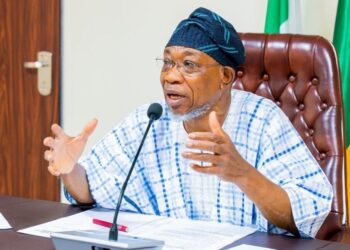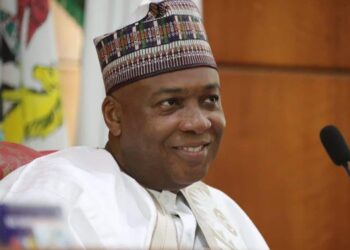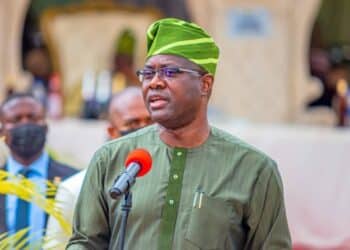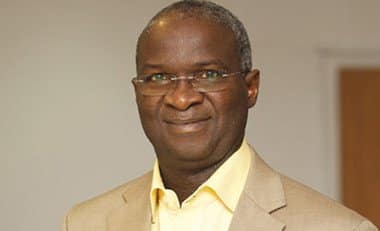Women’s participation in politics is fundamental to achieving gender equality and fostering inclusive governance. Throughout history, the representation gap in political structures has been glaring, with women significantly underrepresented in decision-making positions. This disparity not only marginalises half of the population but also hampers the potential for comprehensive and effective governance. When women are involved in political processes, they bring diverse perspectives and unique experiences that can lead to more holistic and responsive policies.
The inclusion of women in leadership roles can have a transformative effect on society. Research has shown that women leaders are often more empathetic and collaborative, championing initiatives that prioritise social welfare, health care, and education. These areas significantly affect the livelihoods of families and communities, particularly in nations like Nigeria, where social issues are prevalent. Furthermore, when women hold positions of power, they play a pivotal role in challenging stereotypes and norms, inspiring future generations to pursue leadership and activism.
Gender equality extends beyond mere representation; it significantly influences democratic governance and societal resilience. Studies indicate that nations with higher rates of female political participation are more likely to implement policies that address issues such as poverty, health, and climate change. These insights underline the necessity of a balanced political sphere, where both men and women can contribute equally. In Nigeria, promoting women’s political involvement not only elevates the discourse but also enhances the legitimacy of governmental institutions while fostering trust among citizens.
Ultimately, the active engagement of women in politics catalyses broader societal change, promoting justice, equity, and sustained development. Thus, ensuring that women participate in political processes is vital in crafting an inclusive democracy that reflects and respects the values of its entire populace.
Trailblazing Women in Nigerian Politics
Nigeria has witnessed the emergence of formidable women in politics who have not only broken barriers but have also significantly contributed to the governance and political landscape of the nation. These leaders have demonstrated remarkable resilience and determination in the face of challenges prevalent in a male-dominated sphere. One such trailblazer is Ngozi Okonjo-Iweala, who served as the Minister of Finance and coordinated the economy during critical times. Her tenure is marked by successful fiscal reforms and significant contributions to Nigeria’s economic strategy, amplifying women’s role in economic governance.
Another influential figure is Amina J. Mohammed, who, before her role as Nigeria’s Minister of Environment, served as the Deputy Secretary-General of the United Nations. Her advocacy for sustainable development has garnered international recognition, emphasising the vital impact women can have at both national and global levels. The dedicated efforts of these pioneering women exemplify the shift towards inclusivity and equity in Nigerian politics, showcasing how women’s involvement can lead to transformative political change.
Furthermore, the Nigerian first lady, Senator Oluremi Tinubu, has made her mark through decades of service, advocating for women’s rights and youth empowerment in Nigeria. Her initiatives in the legislative space highlight the importance of women leaders who prioritise community development and social justice. Despite facing numerous hurdles, including societal prejudice and institutional barriers, these women push forward, inspiring the next generations to engage in political discourse and assume leadership roles.
These remarkable women highlight the critical role of female leaders in shaping Nigerian politics and society. Their relentless pursuit of equity and justice serves as a beacon for many aspiring female politicians. Such achievements not only pave the way for gender equality but also strengthen the democratic fabric of Nigeria, illustrating the essential contributions of women in governance.
Inspiring Future Generations of Women Leaders
The stories and achievements of current women leaders in Nigeria play a pivotal role in inspiring future generations. As these women break through the barriers that have historically hindered female participation in politics, they serve as powerful role models for young girls and emerging female leaders. Their narratives not only highlight individual success but also showcase the importance of resilience, determination, and the pursuit of equality in male-dominated arenas.
One of the critical mechanisms through which these women can empower others is mentorship. Successful female leaders who actively engage in mentorship programs provide invaluable guidance and support to young women seeking to navigate the often challenging landscape of politics. By sharing their experiences, offering advice, and fostering skill development, mentors can help cultivate a new cohort of politically active women. This mentorship can bridge the gap for aspiring leaders, creating paths that were previously obscured or inaccessible.
Moreover, education plays a significant role in this empowerment process. Investing in education for young girls not only expands their knowledge but also enhances their confidence and leadership capabilities. Educational institutions, NGOs, and community organisations can work collaboratively to create programs and workshops that emphasise political literacy, public speaking, and critical thinking. These educational initiatives prepare young women to participate more effectively in political discourse, empowering them to express their views and ideas on public platforms.
Community support is equally vital in nurturing the ambitions of future women leaders. Families, friends, and local groups can create an encouraging environment that motivates young women to pursue leadership roles. Such support systems not only reinforce the value of female participation in politics but also counteract societal norms that may discourage women from stepping into leadership positions.
Ultimately, fostering a culture that champions women in politics will ensure that future generations feel empowered to initiate change and make lasting contributions to Nigerian society.
Strategies for Enhancing Women’s Political Participation
Enhancing women’s political participation in Nigeria requires a multifaceted approach that encompasses policy reforms, educational initiatives, grassroots movements, and the transformation of societal attitudes. One of the foremost strategies involves the implementation of policies that foster equality and remove barriers for women entering the political arena. This includes the establishment of quotas for female representation within political parties and legislative bodies, ensuring that women have equitable opportunities to participate in governance.
In addition to policy reforms, educational programs play a crucial role in empowering women. Providing educational resources that focus on leadership skills, public speaking, and political literacy can equip women with the knowledge and confidence necessary to engage actively in politics. Establishing mentorship programs where experienced female leaders guide and support emerging politicians can also create a nurturing environment that encourages women to aspire to political roles.
Grassroots movements are another vital facet of enhancing women’s political engagement. These initiatives can mobilise communities to support women’s candidacies and advocate for their rights. By organising workshops, forums, and campaigns that raise awareness about the importance of women in politics, communities can collectively work to change the narrative surrounding female political participation. Furthermore, these movements should aim to engage men as allies, promoting the idea that increased female representation benefits society as a whole.
Ultimately, shifting societal attitudes is essential for fostering a supportive environment for women’s political engagement. Addressing harmful stereotypes and cultural norms that undermine women’s leadership is crucial. Media campaigns that highlight positive stories of women in politics can inspire future generations and challenge discriminatory practices. By implementing these strategies holistically, Nigeria can create a more inclusive political landscape where women feel empowered to contribute meaningfully to the political discourse and decision-making processes.
Challenges and Opportunities
Despite the progress made, women in politics still face several challenges, including:
Gender stereotypes: Women in politics often face gender stereotypes and biases that can undermine their authority and credibility.
Limited access to resources: Women may have limited access to resources, including funding, networking opportunities, and mentorship.
Cultural and societal norms can limit women’s participation in politics, particularly in patriarchal societies.
Conclusion
Empowering women in politics is crucial for achieving gender equality and fostering inclusive governance. The stories of women who have made a difference in Nigerian politics serve as inspiration for future generations of women leaders. By promoting women’s empowerment and challenging gender stereotypes, we can create a more inclusive and equitable society for all.
Recommendations
To promote women’s empowerment in politics, we recommend:
–Increasing women’s representation: Increasing women’s representation in politics can help ensure that diverse voices are represented in decision-making processes.
Providing support and resources, including mentorship and funding, can help women build successful careers in politics.
Challenging gender stereotypes and biases can help create a more inclusive and equitable society for all.











